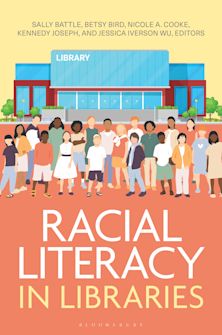Using Literacy Strategies to Enhance Social Studies Education in Elementary Classrooms
- Textbook
Using Literacy Strategies to Enhance Social Studies Education in Elementary Classrooms
- Textbook
This product is usually dispatched within 3 days
- Delivery and returns info
-
Free CA delivery on orders $40 or over
Description
At its best, social studies instruction, especially at the elementary level, prepares students to be active members of civic life-critical thinkers, advocates, and change makers. Using Literacy Strategies to Enhance Social Studies Education in Elementary Classrooms aims to showcase not only social studies instruction at its best, but also, through classroom examples, the kinds of planning and instruction that facilitate building and using their literacy skills and processes in the service of social studies learning and action. Reading, writing, speaking, listening, creating, and viewing are powerful tools to engage students in meaningful social studies. This book is written for elementary teacher educators and pre-service and in-service teachers to encourage and illustrate intentional integration of literacy skills for deeper and meaningful social studies instruction, particularly instruction that is rigorous and inquiry-driven. Each chapter of this book aligns with one or more of these basic literacy processes and includes examples of research-based pedagogy at two different elementary grade bands, concrete suggestions for instructional approaches for supporting students at varied levels of independence, and tools to support implementation.
Table of Contents
1. Introduction
2. Reading: Summarizing and Synthesizing Sources
3. Writing: Writing to Learn and Learning to Write
4. Speaking: Developing Argument and Explanation
5. Listening: Setting a Purpose, Staying Engaged
6. Creating: Multimodal Composition
7. Viewing: Interpreting Graphical Sources
8. Engaging in Inquiry: Putting it All Together
9. Final Thoughts
Product details
| Published | Apr 09 2025 |
|---|---|
| Format | Paperback |
| Edition | 1st |
| Extent | 168 |
| ISBN | 9781538197387 |
| Imprint | Rowman & Littlefield |
| Illustrations | 14 BW Illustrations, 20 BW Photos, 15 Tables, 16 Textboxes |
| Dimensions | 254 x 178 mm |
| Publisher | Bloomsbury Publishing |


































